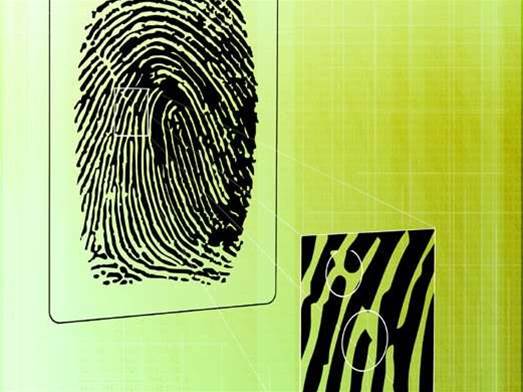Representatives from both international crime database service Interpol and the United States Department of Homeland Security said that Australia shares little of the fingerprints and other biometric data it collects with the international community.

Mark Branchflower, head of the OIPC Interpol Fingerprint Unit said that all the fingerprint data Interpol collects from over 100 member countries is "available to the Australian Government" via its National Central Bureau office in Canberra.
"As for Australia sending fingerprint data to us? It's very, very limited. Very limited. Nearly non-existent," he told delegates.
Branchflower said he is concerned Australia isn't including important subsets of Interpol's fingerpring data in its own national fingerprint database - data that would be useful in helping to track the activities of international criminals.
But he said Australian authorities have informed him the oversight will be remedied in the near future.
Michael Hardin, senior policy analyst at the US Department of Homeland Security said Australia shares surprisingly little biometric data with the United States.
Australia's Department of Immigration (DIAC) did hand over to the United States access to data it collected during a voluntary fingerprint program run at Australian airports in 2005, but this data was "found to only include compliant travellers."
"[That] should be expected considering the process was voluntary," he said. "We have destroyed all of this data since."
Both the DHS and Interpol gave examples where sharing biometric data can assist in the prevention of terrorism and international crime.
The 'poster child' for international biometric data sharing, said Hardin, was the arrest of a man in the United Kingdom using U.S. biometric data for a crime conducted in Australia.
The man in question was applying for political asylum in the United Kingdom. The UK Government had only recently shared the biometric data of 30,000 asylum seekers with the Department of Homeland Security.
Within this data the American authorities discovered a fingerprint match with a man that had at an earlier stage entered US territory using an Australian passport.
The Department contacted Australian Authorities and discovered that the man's Australian passport had been cancelled as there was a warrant out for the man's arrest in Victoria on charges of rape.
The man had previously been arraigned, freed on bail, fled Australia, and was now applying for asylum in the UK under a new name.
"After several more fingerprint matches, the Victorian Police told the UK authorities - we want him back," Hardin said.
"Dutifully, the man would turn up to the UK authorities to get his cheques - he got a nasty surprise when six UK police officers swarmed him on his next visit."
The man was extradited back to Australia and is now serving six and a half years in a Victorian prison.
"This person would never have been caught without the sharing of fingerprints," Hardin said.
Hardin expressed hopes Australian Government agencies will be more forthcoming with sharing biometric data in the future.
"As Australia starts to collect data around asylum seekers and detention, we hope it will probably do more information sharing in the future."
Terry Aulich, chair of the Australian Biometric Institute's privacy committee, defended Australia's one-way relationship with other global authorities.
"Its Australia's higher concern with privacy that is underlying it's caution," he told iTnews.
Aulich said that he personally thinks the US' capacity to manage people's biometric privacy "isn't up to standard."
"I literally don't trust them, not since President Bush enabled himself the power of executive decisions," he said.
"The Biometrics Institute here in Australia has a privacy code for biometrics. America doesn't have a code, it has a statement of intent. The only thing they can offer is the general feeling that we're the good guys, you can trust us."


.png&h=140&w=231&c=1&s=0)

_(23).jpg&h=140&w=231&c=1&s=0)






 iTnews Benchmark Awards 2026
iTnews Benchmark Awards 2026
 iTnews Executive Retreat - Security Leaders Edition
iTnews Executive Retreat - Security Leaders Edition
 iTnews Cloud Covered Breakfast Summit
iTnews Cloud Covered Breakfast Summit
 The 2026 iAwards
The 2026 iAwards












_(1).jpg&h=140&w=231&c=1&s=0)



